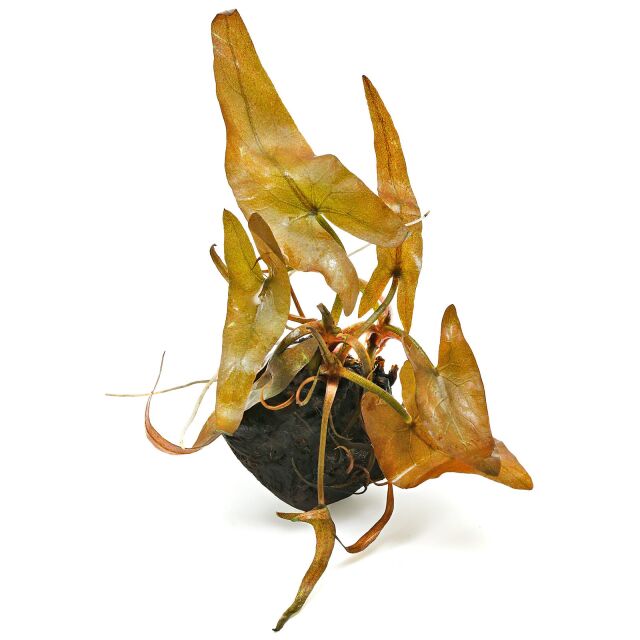Red waterlily



Nymphaea rubra
Red waterlily
- Also traded as "Nymphaea stellata"
- Waterlily from tropical Asia
- Brown-red submerged leaves
- Purplish red flowers
- Large solitary plant
Item question
We’re here for you!
Please enter your question and e-mail and we’ll contact you as soon as possible. It usually takes us up to 24 hours during business days to respond.
Thank you for your question!
Thank you, we’ll get in touch!
Close window
You already sent us a question.
Please wait a few minutes
Description
The Red water lily, also Indian red waterlily, is a tropical species from India and also widespread in the rest of tropical Asia. It is popular as an ornamental pond plant in warm countries. Nymphaea rubra is often mistakenly sold as Nymphaea stellata and is sometimes included in N. pubescens. It is closely related to Nymphaea lotus from Africa and, like the latter, is a night bloomer. Its splendid, approx. 9 - 15 cm wide flowers, which open in the evening and close in the morning to mid-morning, are not white, however, but pinkish red to purplish red. Nymphaea rubra is often called ‘Dwarf Water Lily’ in the aquarium trade, but this is a misnomer. The submerged plant grows to a height of at least 30 cm. The underwater leaves have at least 20 cm long brown-red blades with a few small dark red spots. The petioles of the submerged leaves are up to about 20 cm long. Vigorous plants soon develop floating leaves with 30 to 70 cm long petioles. The round floating leaves are dark red when they emerge, later turning olive green and have blades about 20 - 40 cm long (usually smaller in aquariums). The margin of the floating leaves is more or less toothed. The rhizome is a tuber.
Like the Tiger lotus (Nymphaea lotus), Nymphaea rubra is not very demanding, but should be planted in a free, bright spot. It is suitable as a solitary plant for large aquariums. Narrow arrow-shaped, later broad heart-shaped underwater leaves sprout from the tuber. Temperatures between about 20 and 30 °C are recommended. Nutrient-rich substrate is very conducive, but overly lush plants can quickly develop long-stalked floating leaves that shade the aquarium considerably. If you remove these as soon as they appear, shorter-stalked underwater leaves will sprout again. The beautiful red flowers of N. rubra only appear, however, if the plant is allowed to grow undisturbed as a floating leaf plant in a large, wide tank.
The plant is mostly supplied as a tuber that sprouts in the aquarium. A short shoot grows from the tuber, at the end of which a rosette of leaves with roots appears. This young plant breaks off easily from the tuber. Even if Nymphaea rubra is supplied as a young plant without a mother tuber, it is viable and continues to grow independently. The stem of this plant is the new, growing tuber.
General information
| Item no. |
|
| EAN | |
| Weight | 0,05 kg |
| Shipping weight | 0,10 kg |
Customers ask customers
You have questions about this product? Ask other customer or our support team about this product!